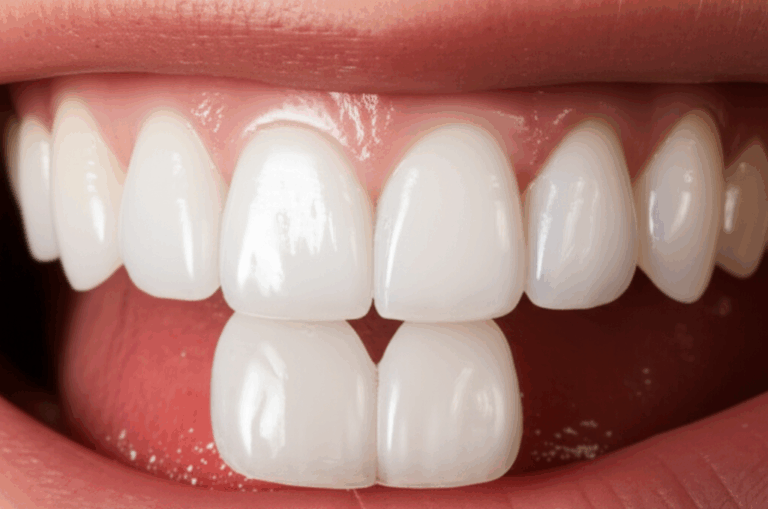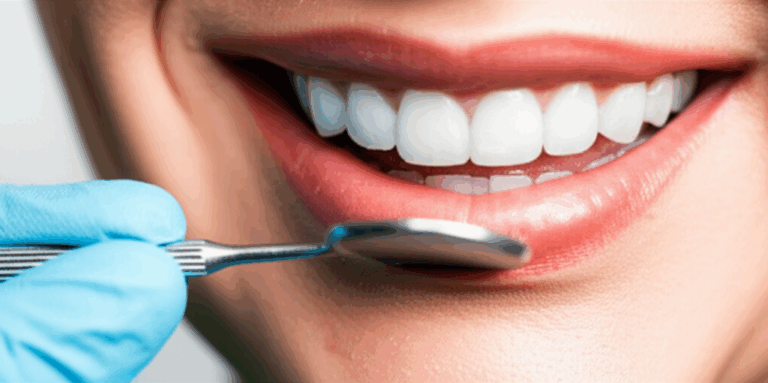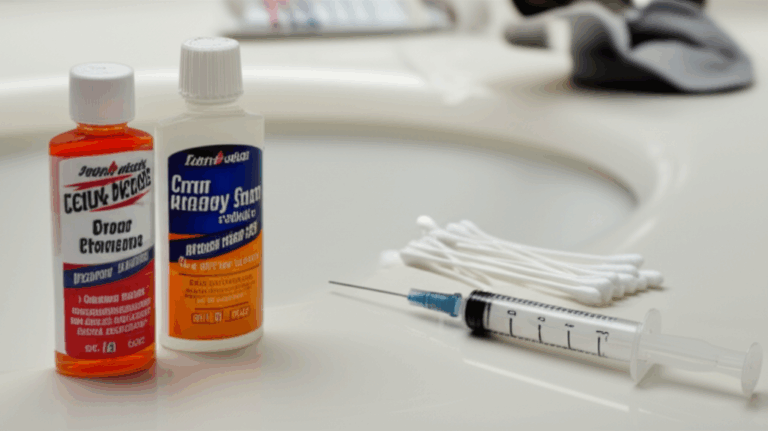
How to Become a Paediatric Dentist in the UK: Your Complete Career Guide
That dream of helping kids smile brighter? If you’re searching for “how to become a pediatric dentist UK,” you’re not alone. Maybe you love working with children, or perhaps you’re curious about how teeth grow and change. Whatever brings you here, you’ve got a good question—and it deserves a clear answer.
Let’s break it down together. The path to paediatric dentistry can seem long and tricky, but don’t let that scare you away. You’re about to see not only what this job means but also how you can get there, why it matters, and what to expect once you do.
In This Article
- What Is a Paediatric Dentist? (And Why Does It Matter?)
- Your First Step: Earning a Dental Degree (BDS)
- Foundation Training: Kicking Off Your Career
- Building Experience: Dental Core Training and Beyond
- Specialising in Paediatric Dentistry: The StR Pathway
- Becoming an Official Specialist: GDC Registration
- Working as a Paediatric Dentist in the UK
- Skills and Qualities: What Makes a Great Paediatric Dentist?
- Common Questions (Answered!)
- Your Next Steps: Empowering Advice
What Is a Paediatric Dentist? (And Why Does It Matter?)
Have you ever seen a child walk into a dental clinic, holding their parent’s hand, looking a bit scared? Paediatric dentists are the ones who know how to turn those scared faces into smiles. They’re dentists who have learned more to look after children (from babies to teenagers) and also young people with special needs.
What makes paediatric dentists different from regular dentists? Two things: extra knowledge about growing teeth and understanding how children think and feel. They get extra lessons on everything from when baby teeth come out to ways to help kids who are nervous. They are good at talking to people, gentle hands, and making sure both kids and their parents feel safe and know what’s going on.
Why might you want to be a paediatric dentist?
- Difference: You help shape a child’s view of looking after their teeth, and that can last a lifetime!
- Variety: Every day is different. One time you’re doing fillings, the next you’re showing a kid how to brush, and you might work with a special team helping children born with problems in their mouth.
- Challenge: Children aren’t just “small adults.” You’ll use all your skills—from science to caring to thinking on the spot.
Does that sound rewarding? Maybe a little hard too? That’s okay. Let’s talk about how you get there.
Your First Step: Earning a Dental Degree (BDS)
Before you can look after children’s teeth, you need the basics: a Bachelor of Dental Surgery (BDS). In the UK, this is where your dental career starts—think of it like learning the basics before moving on to more.
A. Entry Requirements for Dental School
1. Academic Qualifications
- A-levels: Most schools want top marks in science. Usually, you’ll need AAA or AAB in Chemistry and Biology. Some also ask for another science or Maths.
- GCSEs: You’ll probably need at least a 6 or 7 (B or A) in English, Maths, and science subjects.
2. Admissions Tests (UCAT or BMAT)
- The University Clinical Aptitude Test (UCAT) and the BioMedical Admissions Test (BMAT) check your thinking and problem-solving skills. They’re not about what you’ve memorised but how you think quickly.
- Tip: Practise doing questions with a timer. There are lots of free practice tests online.
3. Work Experience
- Dental schools want you to have spent time in a real dental setting. This could mean watching a dentist work, helping with children in other places, or volunteering at a care home.
- It’s not really about hours; it’s what you learned from it. Did you spot good patient care? Did you find it inspiring?
4. Personal Statement & Interviews
- Your personal statement should explain why you want to be a dentist, especially for children. Maybe you helped a nervous family member see a dentist, or read to kids at a hospital.
- Interviews: Lots of schools use MMIs—short interviews where they ask you about things like teamwork or what you would do in tricky situations.
B. The Application Process
- You’ll use UCAS to apply and can pick up to five dental schools.
- Once you get your offers, you’ll choose your first choice and backup. Top dental schools include King’s College London, University of Bristol, and Manchester.
C. The BDS Degree Programme (5-6 years)
- You’ll study for at least five years (some courses are a bit shorter if you already have a degree).
- First years: You learn body science and tooth anatomy.
- Clinical years: You treat real patients—including children.
- By the end, you’ll have the technical skills, learn how to talk with patients, and get an idea about how to look after the public’s teeth.
Foundation Training: Kicking Off Your Career
Got your degree? Well done, but don’t take a break yet! Dental Foundation Training (DFT) is next.
A. What is DFT?
DFT is like your first “on the job” year. You work at an NHS dental practice with a mentor watching and helping you. You’ll quickly build experience and confidence.
B. Application and Structure
- There’s a national system to apply, and many people want these jobs.
- You’ll have your own patients (including kids), but you’ll always be able to ask for help if you need it.
C. Time to Work Independently
When you finish DFT, you join the General Dental Council (GDC) register. You can now work on your own (and you’re much more employable).
Building Experience: Dental Core Training and Beyond
Before you specialise in children’s dentistry, you need broader experience.
A. Why Do More Training?
Some call this the “try before you pick” stage. You see lots of different types of dentistry, including surgery, fixing broken teeth, or special care for people with disabilities.
B. Dental Core Training (DCT)
- Usually lasts: 1-2 years.
- In DCT you work in hospitals and sometimes in the community. You’ll treat more tricky cases and work with different types of patients and teams.
- This stage builds your skills and helps you make a good CV.
C. Extra Qualifications
Many people take the MFDS (Membership of the Faculty of Dental Surgery) exam at this point. It shows you’re serious and skilled.
D. Building a Portfolio
Keep notes on everything—projects you’ve done, teaching, research, or courses you attended. Paediatric dentistry is popular, so you need to stand out!
Quick Tip:
If you like technology in dentistry, have a look at the newest ways teeth are fixed and replaced. Labs like this digital dental lab show how custom crowns and fake teeth are made—sometimes even for children. Modern tech is changing how dentists work!
Specialising in Paediatric Dentistry: The StR Pathway
Let’s talk about how to become a specialist in children’s dentistry.
A. What Is Specialty Training?
The Specialist Training Registrar (StR) path is tough to get into and hard work. There are only a small number of places each year, so you have to show you really want it and can do it.
B. How to Apply
You use a national system—lots of people try, but only some get in. You’ll be judged on:
- Your school and work record
- Experience working with children and more complex problems
- Proof you care about this field (your portfolio)
- How you do at the interview
C. The StR Programme (Usually 3-5 Years)
- You’ll do a mix of hospital and community work, plus advanced lessons about children’s teeth.
- You deal with everything—everyday decay, rare conditions, children with lots of medical problems.
- You’ll learn ways to manage children who are nervous or need to be asleep for treatment, how to deal with accidents, and more.
- Most people also do a Doctorate in Clinical Dentistry (DClinDent) during training.
D. Final Exams and Qualifications
- You have to pass the MPaedDent (Membership in Paediatric Dentistry) exam, and usually finish a DClinDent degree.
- This lets you join the official GDC Specialist List.
Becoming an Official Specialist: GDC Registration
Once you’re done with your training and you pass the exams:
- You ask the General Dental Council to put you on their Specialist List.
- Now it’s official: you’re a “Specialist in Paediatric Dentistry.”
- You can now call yourself a paediatric dentist and treat more complex patients.
Working as a Paediatric Dentist in the UK
You’ve got the title—so what now?
A. Your Day-to-Day Work
- Checking: Spot and follow up on teeth and jaw problems, from babies to teenagers.
- Treating: Do fillings, crowns, fix broken teeth, straighten teeth, and small surgeries for children.
- Preventing: Teach families about good habits (diet, brushing, fluoride).
- Helping special needs kids: Care for children with disabilities, illnesses, or those who are very scared of dentists.
B. Where You Might Work
- NHS Hospitals: Handle more difficult cases with a team.
- Community Dental Services: Help children who find it hard to see a regular dentist.
- Private Specialist Clinics: Look after children who need longer or more difficult treatments.
- Universities/Research: Teach students or work on studies about kids’ dental health.
C. How Much Do You Get Paid?
- Newly qualified NHS paediatric dentists: About £45,000 to £75,000 a year.
- Consultants: £85,000 to over £120,000 (NHS, 2023 figures).
- Private dentists can earn more; it depends on your patients and services.
D. Jobs and the Need for Paediatric Dentists
There are only about 560 registered paediatric dental specialists in the UK. Demand is steady—many children need special care, and the NHS wants to prevent problems before they happen.
Teams dealing with birth defects in the mouth or children in need of extra safeguarding also rely on paediatric dentists.
Skills and Qualities: What Makes a Great Paediatric Dentist?
It’s not just about steady hands. Here’s what matters:
- Talking well: You need to explain things simply, to scared kids and their parents.
- Kindness and patience: Kids and parents might be worried or have special needs, so patience helps you help them.
- Good hands: You work in small mouths with small tools.
- Thinking on your feet: Every child and problem is a bit different!
- Staying calm: Sometimes kids shout, cry, or won’t sit still. Your calmness helps everyone relax.
Common Questions (Answered!)
Q: How long does it take to become a paediatric dentist in the UK?
A: About 11 to 15 years overall. Here’s a simple breakdown:
- BDS (dentist degree): 5 years
- Foundation year (DFT): 1 year
- Core training/extra experience: 1-2 years
- Specialty training (StR): 3-5 years
Q: Can I start paediatric dentistry right after my BDS?
A: No, not straight away. You must finish at least a year (DFT), get wider experience (1-2 years), and it helps if you pass extra exams before applying for specialist training.
Q: What’s the hardest part of training?
A: It’s tough to get a training place, and you need to study hard and practise a lot. Looking after scared or special needs children can be hard, but it’s a great feeling when you succeed.
Q: What’s the difference between a normal dentist who treats kids and a paediatric dentist?
A: Any dentist can do regular work for children, but paediatric dentists manage more difficult problems—children with jaw issues, disabilities, accidents, and tricky behaviours.
Q: Can I teach or do research if I’m a paediatric dentist?
A: Yes! Many paediatric dentists work part-time teaching students or doing research on better ways to treat children.
Your Next Steps: Empowering Advice
So, what now if you feel excited by paediatric dentistry?
If you’re in school or college:
- Focus on science classes, especially Biology and Chemistry.
- Look for chances to shadow dentists or volunteer with children.
If you’re about to apply to dental school:
- Read up on the best UK dental courses on the UCAS website.
- Get ready for the UCAT/BMAT tests.
- Write a personal statement that shows your real interest (don’t be shy about showing you care!).
If you’re in dental school or just finished your degree:
- Try to get paediatric dental placements.
- Go to talks by the British Society of Paediatric Dentistry (BSPD).
- Find mentors and friends in the field.
- Think about joining in with dental research.
If you’re nearly ready to apply for specialty training:
- Keep notes and records of everything you do.
- Get experience in hospital or community dentistry.
- Try the MFDS exam if you can.
And at every stage…
- Remember why you started. Whether it’s one child leaving happy, or helping lots of families, you really do make a difference.
Summary in a Nutshell
Here’s everything in a few simple points:
- To become a paediatric dentist in the UK takes time—about 11–15 years from university to specialist.
- The path: BDS degree → Foundation Training → Dental Core Training → Paediatric Specialty Training → GDC Specialist registration.
- Most work in NHS hospitals, community services, or private clinics—some teach or do research too.
- You’ll need science knowledge, kindness, steady hands, and people skills.
- The job is rewarding, there’s need for more paediatric dentists, and you’ll help children have healthy teeth for life.
Explore More and Stay Ahead
If you’re curious about how dental offices make crowns for kids, see how a crown and bridge dental lab crafts these parts . Want to know what 3D printing is doing in dentistry? Take a look at a modern 3d dental lab for some ideas.
Ever wonder what materials are used? Find out how a dental ceramics lab makes natural-looking, tough crowns—even for the youngest patients.
Your Healthy Takeaway
Remember:
- Every paediatric dentist started out just like you—wondering if this was right for them.
- The journey is long but clear, with lots of support along the way.
- You’ll change lives, learn lots of skills, and join a caring group of dental specialists.
Ready to make a change for kid’s smiles?
Start now:
- Read more, shadow a dentist, talk to teachers, or contact dental schools.
- Stay interested, keep trying, and don’t lose sight of your dream—a future full of bright, healthy smiles.
For more detail or the latest updates, visit the General Dental Council or the British Society of Paediatric Dentistry.
Smile on—you’ve got this!








